Words can inspire, anger, depress, or uplift. We can be eloquent, stammering, chatty, or tongue-tied. But how well do we really know the words we use? Take a look at the list below and find out just how much of a language buff you are.
42. Circular Logic
The word "encyclopedia" is thought to come from a misunderstanding of the Greek for “a well-rounded education.”

41. Sir Slow-Witted
The word "dunce," meaning an idiot, once meant a man of great learning. The word comes from the name given to the followers of Scottish theologian and philosopher John Duns Scotus. Duns Scotus’s philosophies were commonly accepted wisdom. In the 16th century, when the Dunses argued against the new philosophy of Renaissance humanism, “dunce” was used as an insult meaning someone incapable of learning.

40. Governor Gerrymander…
Gerrymandering has been making headlines recently. The word was first used in 1812 to describe the creation of Massachusetts districts designed to benefit the Democrat-Republican party under Governor Elbridge Gerry. It’s a portmanteau of the governor’s name and the word salamander, the mythological animal the unnatural district was thought to resemble.
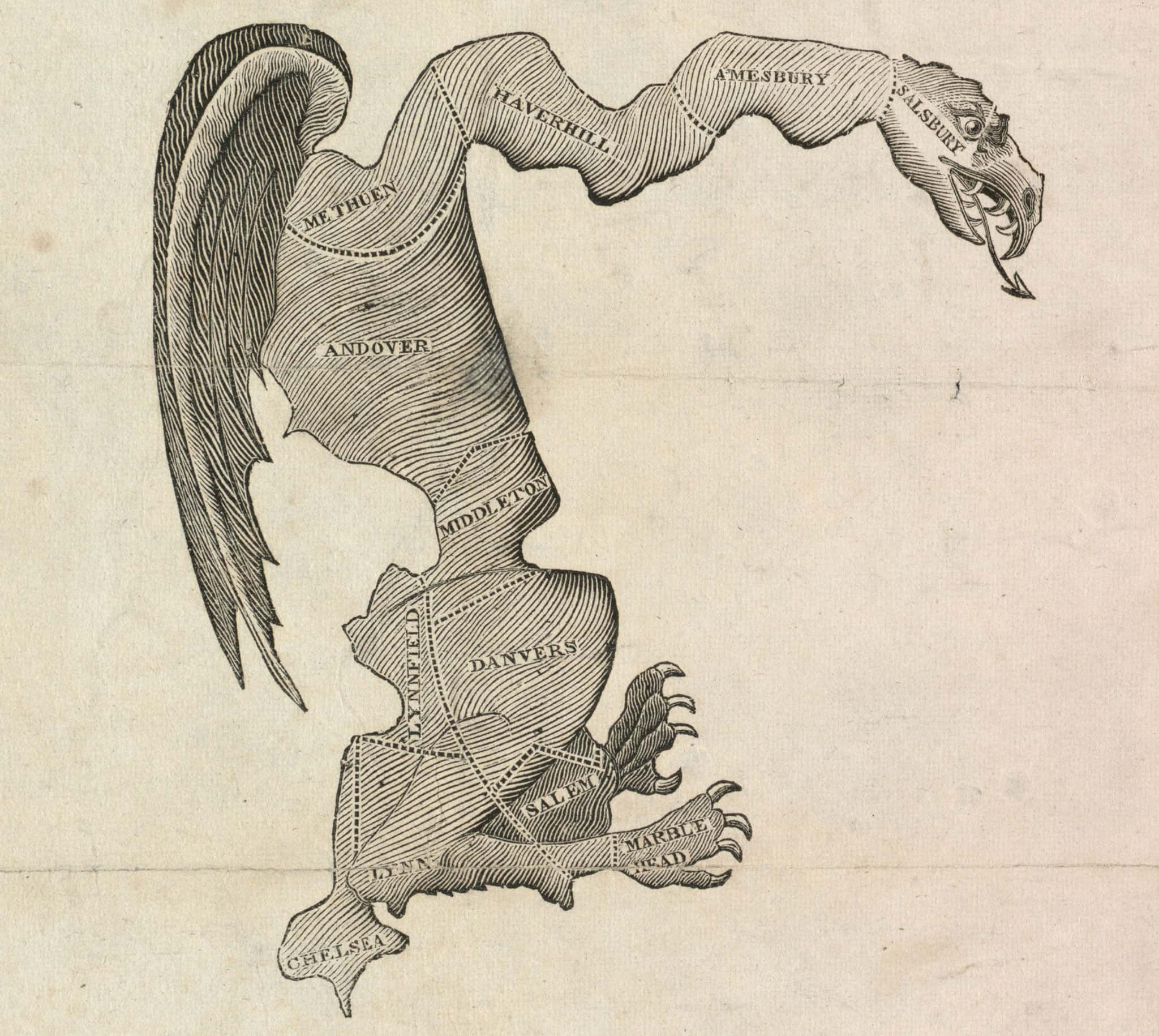
39. Meet Captain Boycott
The word "boycott" comes from the name of a 19th century Irish land agent, Captain Charles Boycott. When Boycott treated the tenants under his charge poorly, the people in the locality organized to shun and refuse to work for him—and the first boycott began.

38. JUMBO SIZE!
Jumbo was the name of a famous elephant exhibited around the world in the 19th century. The name came from a combination of jumbe, a Swahili word for chief, and jambo, meaning hello or welcome—but came to mean massive or giant.
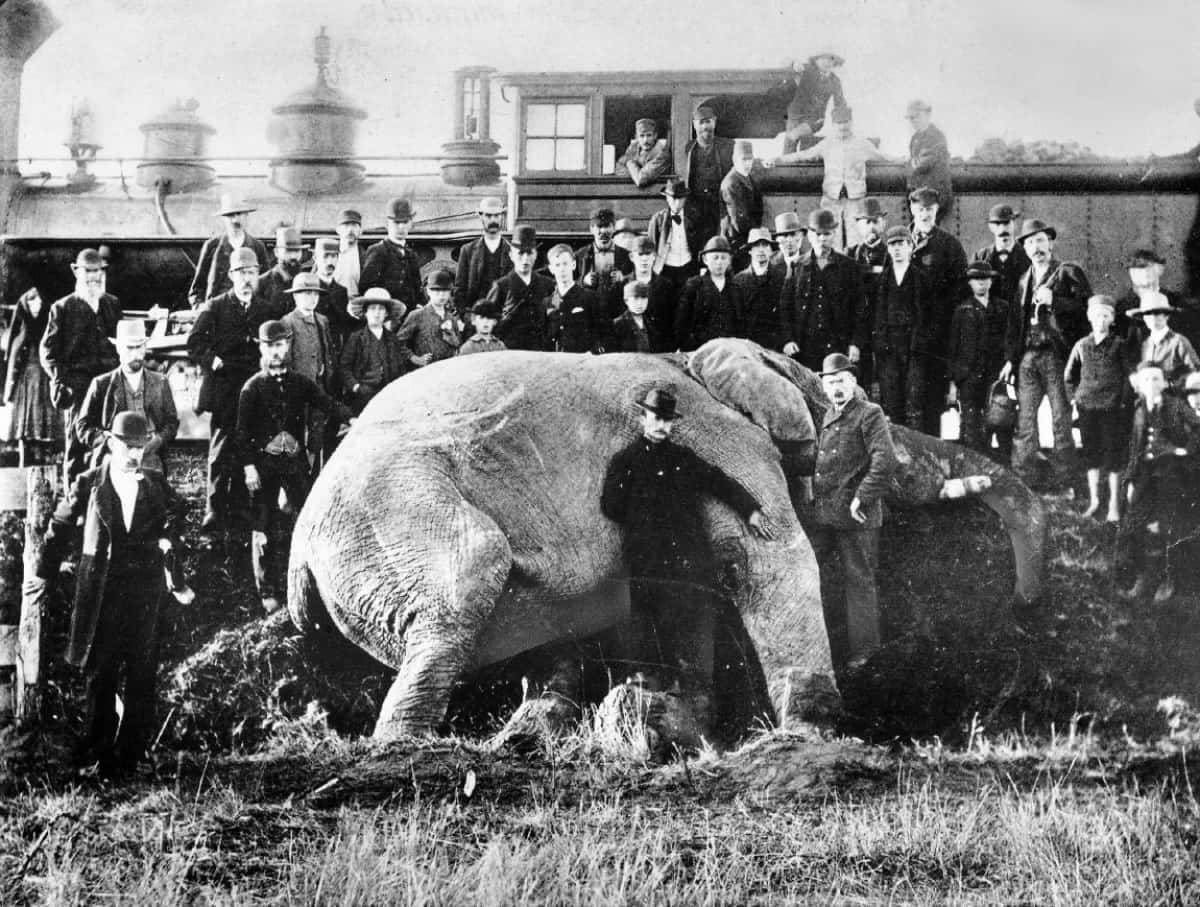
Jumbo the elephant after a tragic run in with a train
37. Sticks and Stones
We might describe sarcasm as sharp or biting. Its etymology derives from the Ancient Greek for “ripping or tearing of flesh.”

36. Alexa, What Does “Computer” Mean
Sometimes it can be hard to tell computers apart from people. Starting in 1613, the word "computer" referred to a person, meaning “one who calculates.” Starting in the later 19th century, it was used to refer to a machine, and since 1945 to refer to an electronic device.

35. Siri: The Slave in Your Pocket
The word "robot" was coined for a Czech play, K. Čapek's R.U.R: Rossum's Universal Robots from 1920. It means “forced labor”—basically, a slave.

34. Hashish User’s Creed
"Assassin" comes from centuries of mispronunciation of the Arabic term for hashish-users. During the Crusades, members of a fanatical Muslim sect used to smoke hashish before going on missions to kill their opponents.

33. Miasmalaria
We know today that malaria is a disease carried by mosquitos. Its etymology, though, comes from mala aria—Italian for “bad air.” The word’s history reflects the belief (called “miasma theory”) common through the 19th century that disease was caused by bad smells or foul air.

32. I Heard a Joke About the Plague But You Probably Won’t Get It
Speaking of disease, the word "quarantine" comes from the Italian for “forty days.” This was the period of time that authorities in Venice kept ships from plague-ridden countries in port before allowing them to unload.

31. In Profile
The word "silhouette" is derived from the name of an eighteenth-century French finance minister, Étienne de Silhouette. During the Seven Years’ War, France imposed austere economic policies, and the finance minister’s name came to be synonymous with something done cheaply. The name was then applied to portraits made by cutting profiles out of black card—the cheapest way to record a person’s appearance prior to the advent of photography.

30. Fizzle, Fizzle, Fizzle Out
The word "fizzle" means “to fail or die out, especially after a promising start.” Perhaps fittingly, it comes from a Middle English word (fist) that means “to fart quietly.”

29. Fiery, Frisky…
Weirdly, fist is also the root of the word “feisty.”

28. The Hat of Death
To “put the kibosh” on something is to put an end to it. While the etymology of the term is disputed, one possible source is from the Irish caidhp bháis, meaning death cap. This could refer to either the hood put on someone before they were hanged to death, or the "black cap" worn by English judges when pronouncing the death sentence.

27. Clearly This Was Before Feminism
"Vagina" comes from the Latin term for a sheath or a scabbard. The anatomical sense of the word is a modern invention and was not used in classical times.

Confusing
26. Gives A Whole New Meaning to Avocado Toast
"Avocado" comes from the Nahuatl—the language spoken by the Aztecs—word for testicle. Besides the seeming resemblance, the fruit was also thought to be an aphrodisiac.

25. Clearly They Take Their Drinking Seriously
"Whiskey" comes from the Gaelic meaning “water of life.

24. Vodka My Dear
And "vodka" adds the Slavic diminutive ending to the for the word voda, meaning water—making "vodka" literally mean something like “dear little water.”

23. The Free Pen is Mightier Than the Free Sword
Working as a freelancer can feel like a battle. In fact, in the middle ages, the term "freelance" originally meant a mercenary warrior (or “free-lance”) who was not tied to the service of a particular lord.

22. The Sadness of the Goat
The word "tragedy" has its roots in the a Greek word meaning “goat song.” This may come from the fact that the prize in Athenian dramatic competitions was a live goat. Other theories say that participants wore goat costumes to dress up as satyrs, half-goat beings that were part of Dionysian revelry. It may also just mean that the Greeks thought goats were terribly tragic.
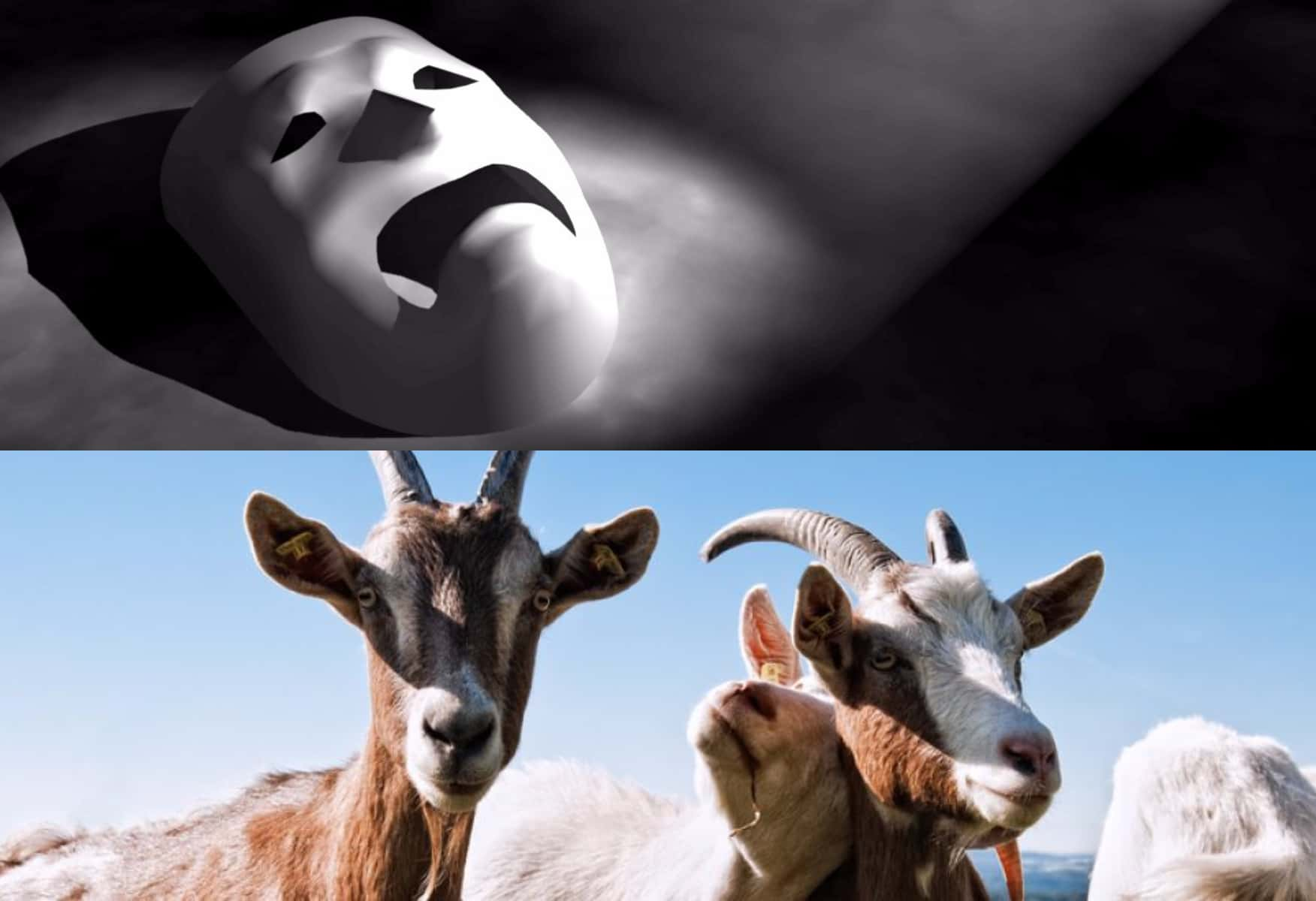
21. City of Demons
"Pandemonium" was coined by 17th-century English poet John Milton in his epic Paradise Lost. It was the name for a great city in Hell, and literally means “the place of all the demons.”

20. Check, Mate
“Checkmate!” is what you say in chess when the other player’s king is threatened with capture. It makes sense, then, that the term is thought to come from a Persian phrase meaning “the king is helpless,” or in Arabic, “the king is dead.”

19. Lost in Translation
In the 14th century, the word "translation" originally could refer to the movement of a saint's body or relics to a new place.
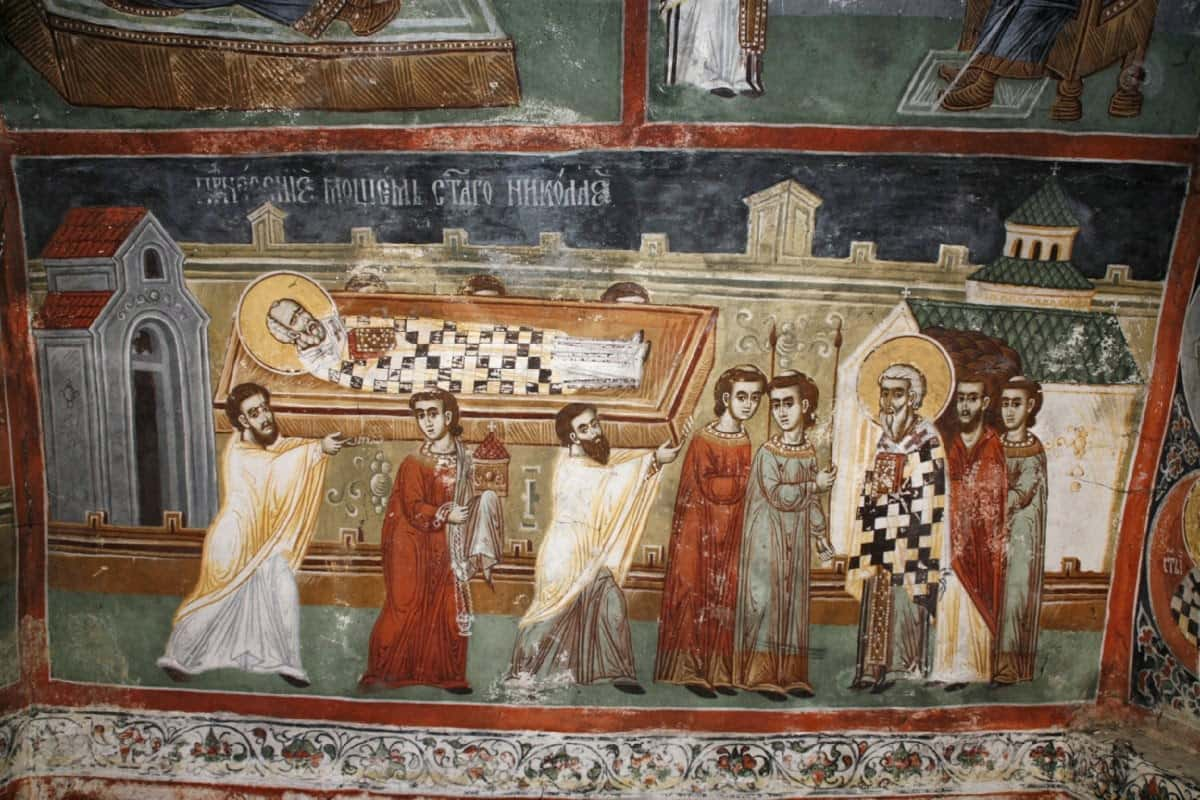
18. The House Always Wins
The word "casino" literally meant “little house” in Italian. In the 19th century, it came to mean small outbuildings that housed fun activities such as dancing, listening to music…and gambling. In modern-day Italian, a casino is a bordello, while the gambling house is spelled with an accent on the final o: casinò.

17. The Secret of the Figs
A "sycophant" today is an insincere flatterer, but it also has the sense of an informer or slanderer. The term comes from the Ancient Greek word meaning “fig revealer.” It was illegal to export figs from ancient Greece, and so the revealer of figs was someone who squealed on the illegal exporter.
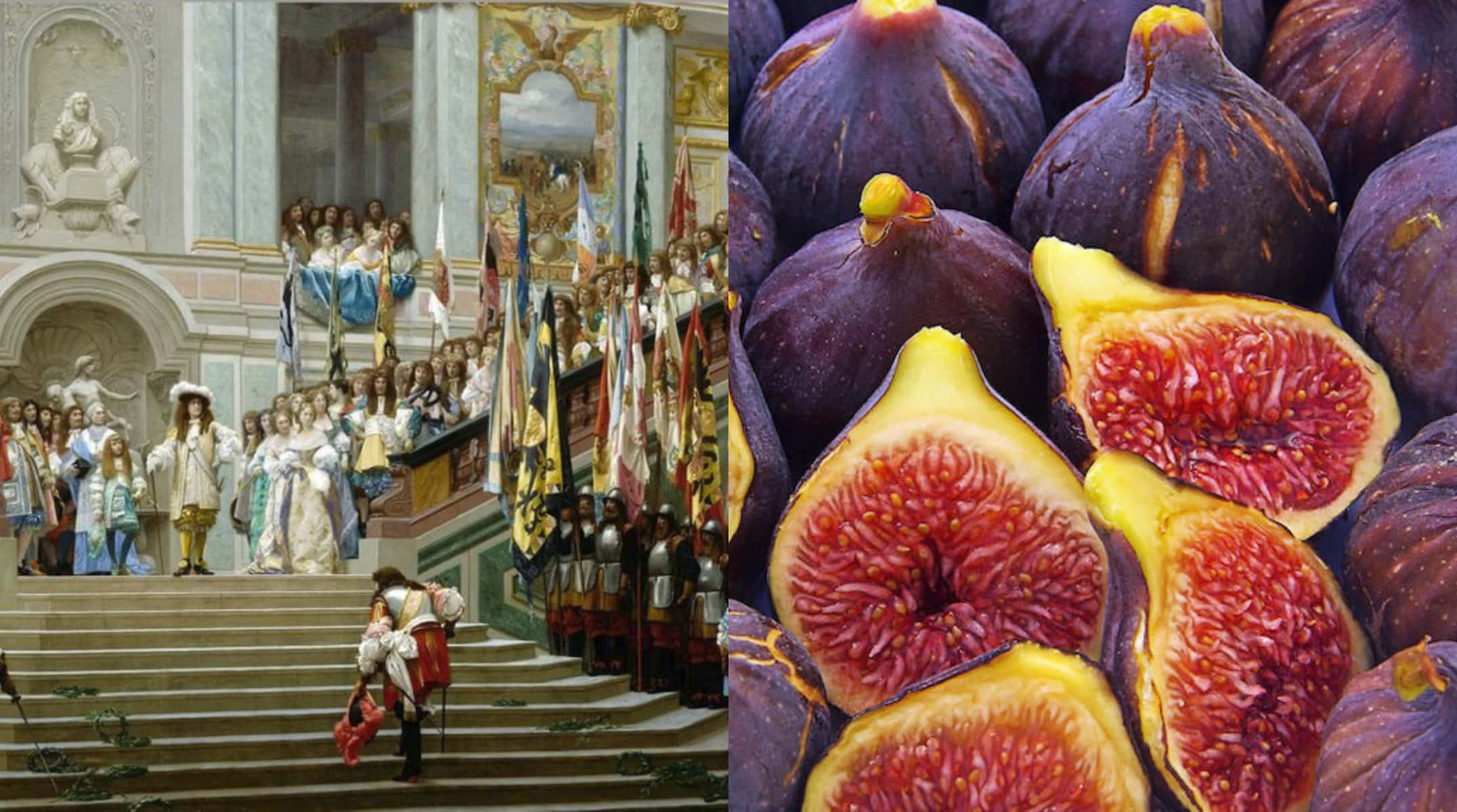
16. Sleaze-Linen
If you say someone is “sleazy,” it means they’re gross and have low moral standards. The word is theorized to come from the German region of Silesia, which made thin linen cloth once thought to be insubstantial and of low quality.

15. The Wages of Death
The word "mortgage" is French for “death pledge,” which should really make you think hard about ever buying a house.

14. The Eyes Are Pretty Creepy Too
The lemur gets its name from the name for evil spirits of the dead in Roman mythology. Apparently the Romans thought the animal, which walked around at night, was creepy-looking.

13. God-Carriage
A "juggernaut" is a huge, powerful, and mercilessly destructive force or institution—and also a supervillain appearing in Marvel comics. The word comes from a Sanskrit reference to the Ratha Yatra temple car; the word is a corruption of the name of the deity, Lord Jagannath, to whom the temple is dedicated. The mighty Ratha Yatra temple car was reputed to crush devotees under its wheels.

12. Might Want to Pull This One Out at Your Next Pub Quiz
The word trivia comes from the Latin meaning “the place where three roads meet.” The trivia were the three “lower” liberal arts—grammar, logic, and rhetoric—thought to be the topics of a basic education.

11. Walk It Off
Going to the gym can sometimes feel like torture. In fact, the treadmill—originally called the tread wheel—was originally used in prisons. Prisoners were forced to walk on the spokes of a large paddle wheel, and the gears would pump water or crush grain. Prisoners would climb the equivalent of 7,200 feet in grueling eight-hour shifts.
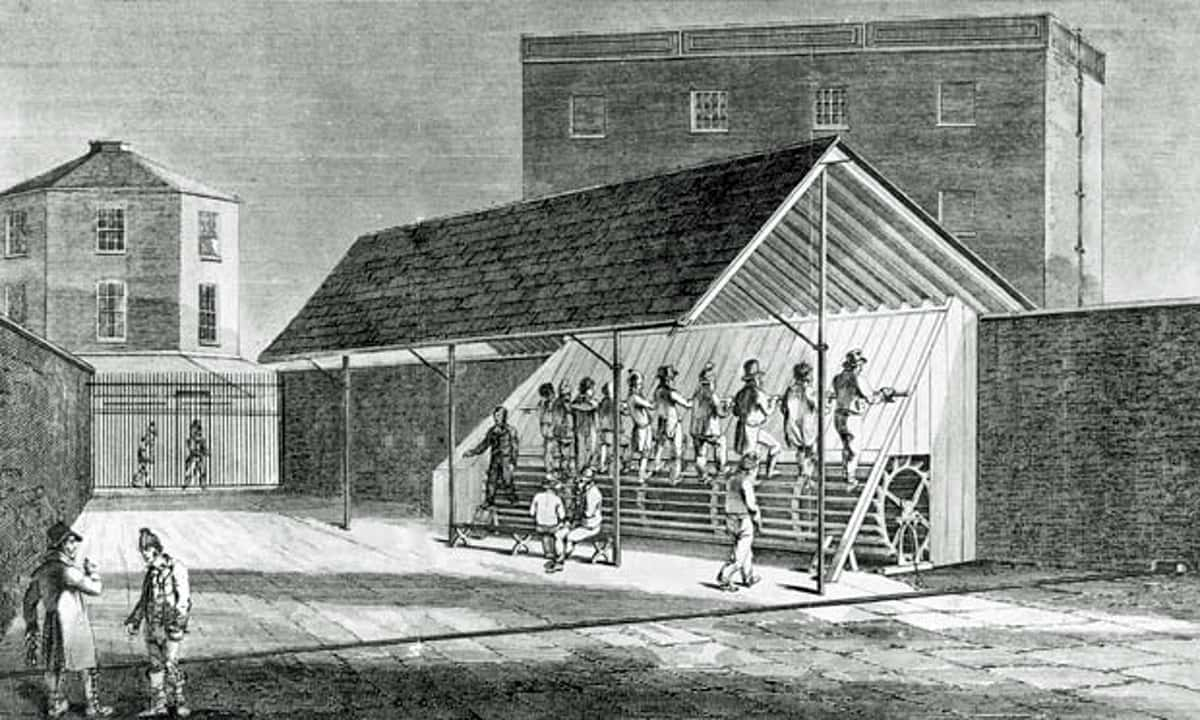
10. Dumb Indeed
Also found at the modern gym: the dumbbell was thought to resemble the apparatus used to ring a church bell, but as it made no noise, it was “dumb.”

9. Heavy Metal
The name for the metallic element cobalt comes from the German kobold, meaning a kind of goblin. German miners used the word to refer to ores containing the metal cobalt, which they thought was worthless. These miners believed that mountain goblins had ruined silver ores, or had stolen the silver from these ores.
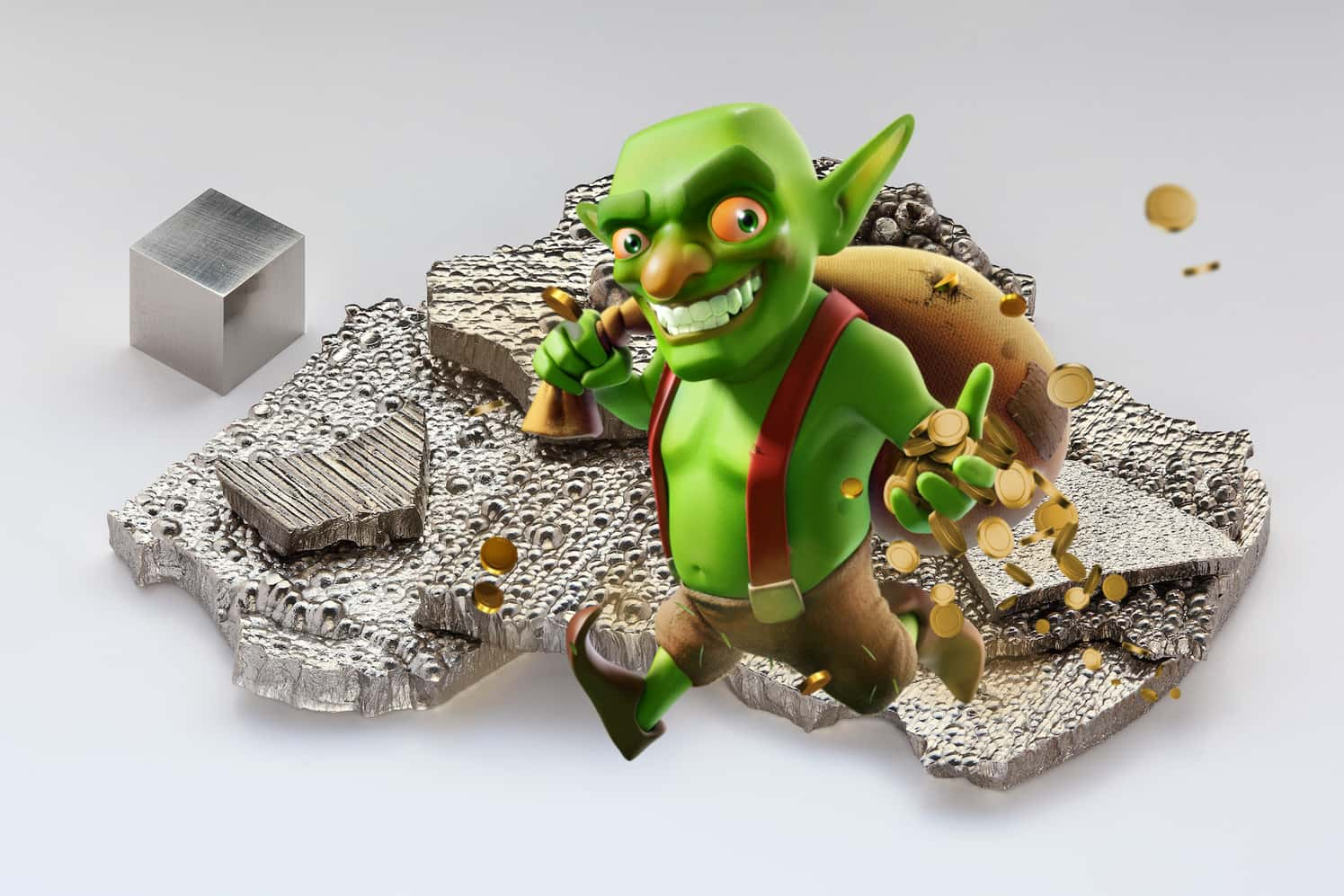
8. Doesn’t Sound So Good For You Now
"Salad" comes from the Latin word for “salted,” as the Romans ate their greens seasoned with brine.

7. A Week’s Salt
The word "salary" also comes from the Latin word for salt—sources say it is because it allowed soldiers to buy salt, which was necessary for food preservation, and at times, workers could even be paid in salt. This root word gave rise to the expression “to be worth one’s salt.”

6. Highbrow
"Supercilious" is a long word for "haughty" or "arrogant," and it comes from the Latin for “eyebrow”—the implication being that a haughty person is someone who raises their eyebrows.

5. Welcome to the Desert of Tautology
"Sahara desert" and "Gobi desert" both literally mean “desert desert”—the first in Arabic, the second in Mongolian.

4. Tautologies in Translation
Also, "Mississippi river" means “great river river” in Anishinaabe, and "the la Brea tar pits" literally mean "the the tar tar pits" in Spanish.

3. Tautology Hill
Torpenhow Hill, in Cumbria in northwest England, is sometimes thought to be a quadruple tautology. Tor, pen, and how all mean "hill" in different languages: torr and penn from different stages of English and how from Old Norse haugr. Because of this, a literal translation of "Torpenhow Hill" might be "Hill-hill-hill Hill."

2. Smarty Pants
A “smart aleck” is someone who’s too smart for his own good. But there really was a smart Alec. Alec Hoag was a thief in New York in the 1840s. Together with his wife, a prostitute, Hoag robbed her customers while she distracted them. But that’s not what got him the nickname—Hoag also bought off the police by promising to split the proceeds with them. Hoag's downfall only came after he ran into financial trouble and ddin't give the police their share. The term was thought to have been used by the police, and it found its way to print.
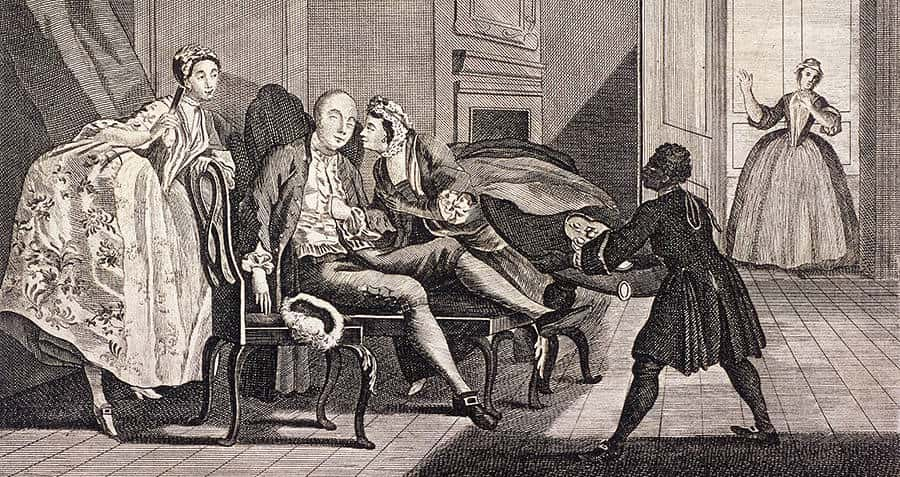
1. LOL
You might think "OMG" is an artifact of the internet age. However, the first recorded usage of the acronym (as a shortened version of “oh my God”) is in 1917. British admiral J.A.F. Fisher wrote it in a letter to Winston Churchill: “I hear that a new order of Knighthood is on the tapis—O.M.G. (Oh! My God!)—Shower it on the Admiralty!!”
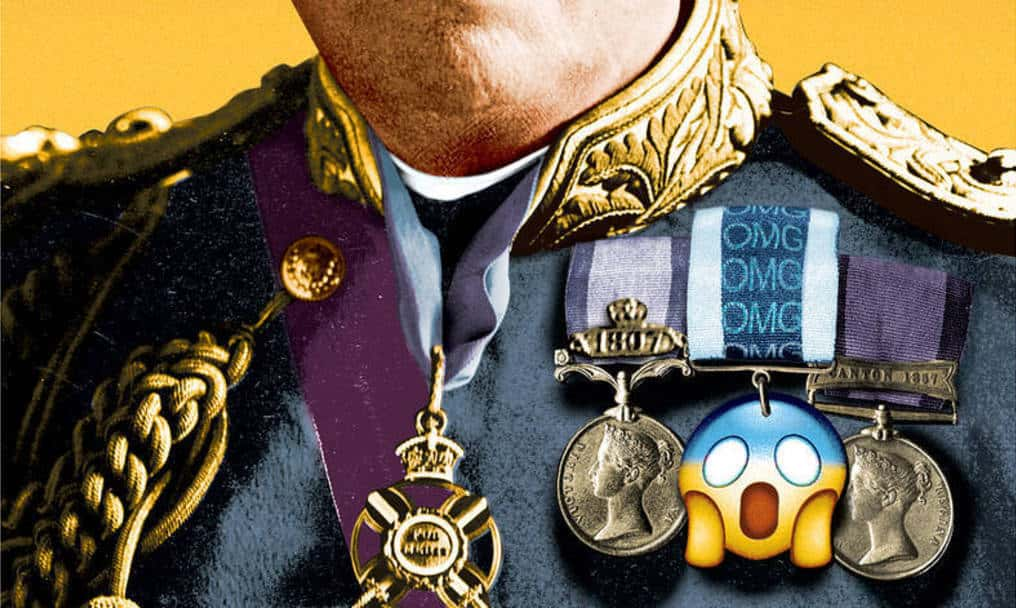
Sources: 1, 2, 3, 4, 5, 6, 7, 8, 9, 10, 11, 12, 13, 14, 15, 16, 17, 18, 19, 20, 21, 22, 23, 24, 25, 26, 27, 28, 29, 30, 31, 32, 33, 34, 35, 36, 37, 38, 39, 40, 41, 42, 43, 44, 45, 46










